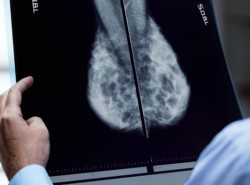
Exploring the role of pregnancy-induced mammary immune cells in breast cancer protection
Published: 05/9/25 12:59 PM

Ajithkumar Vasanthakumar
Project description
It is widely recognised that women who give birth early in life have, on average, double the protection against breast cancer compared to those who haven’t had children. Despite the strong evidence that pregnancy protects against breast cancer, the mechanisms underlying this protection are not well understood. Prior research by Dr Ajithkumar Vasanthakumar and the team have discovered that pregnancy triggers the production of immune cells called Tissue-Resident Memory (TRM) cells in the breast. The ability of TRM cells to protect against breast cancer and their link to a positive response with current immunotherapies are well-documented.
In this NBCF-funded study, the team aims to identify which stage of pregnancy or breastfeeding induces the production and recruitment of TRM cells in the breast, and to uncover the signals that control these processes. The study will use innovative laboratory models to stimulate, detect and track these immune cells. By gaining a deeper understanding of the signals that drive the development of breast-associated TRM cells, the team hopes to replicate these signals in breast cancer models to boost the number of these immune cells and help prevent breast cancer.
By understanding how pregnancy confers protection and leveraging the body’s natural immune defences, this study aims to develop innovative strategies to reduce breast cancer risk for all women.
Why is this work needed
The absence or postponement of childbearing can increase a women risk of developing breast cancer. Understanding how pregnancy protects against breast cancer could lead to new preventive strategies to prevent the development of breast cancer.
Expected outcomes
The successful outcomes of this study will provide valuable insights into how pregnancy protects against breast cancer. Understanding this mechanism could lead to the development of new therapies that mimic the protective effects of pregnancy, offering women a lifelong reduction in breast cancer risk.